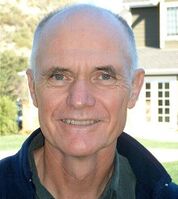James Coleman
| PersonType | Category:Authors of English Works |
|---|---|
| FirstName / namefirst | James |
| LastName / namelast | Coleman |
| namemiddle | William |
| MainNamePhon | James Coleman |
| SortName | Coleman, James |
| bio | Dr. James William Coleman was born in Los Angeles and raised in the San Fernando Valley. He earned his Bachelor of Arts degree from Cal State Northridge (then called San Fernando Valley State College) and his master's and Ph.D. in Sociology from the University of California, Santa Barbara. His areas of specialization were criminology and the sociology of religion. . . .
His dissertation was an attempt to explain the process by which heroin addicts were able to give up drugs and change their lives, but his interest in criminology soon shifted to white collar crime. He first published The Criminal Elite: The Sociology of White Collar Crime in 1985, and it eventually went to six editions. His textbook, Social Problems, which he originally co-authored with his dissertation advisor, Donald R. Cressey, and later with Harold R. Kerbo, Professor Emeritus, first came out in 1980 and had a total of 10 editions. Later in his career, Coleman's interest turned back to the sociology of religion, and more specifically, to the amazing growth of Buddhism in the west. He published The New Buddhism: The Western Transformation of an Ancient Tradition in 1991, and continues to be involved with Buddhist theory and practice. He edited the talks of Reb Anderson Roshi into a booked entitled The Third Turning of the Wheel: The Wisdom of the Samdhnirmocana Sutra, which was published in 2012. His latest book, The Buddha’s Dream of Liberation: Freedom, Emptiness and Awakened Nature came out in June 2017. (Source Accessed Jul 21, 2020) |
| affiliation | Cal Poly San Luis Obispo |
| IsInGyatsa | No |
| Other wikis |
If the page does not yet exist on the remote wiki, you can paste the tag |

